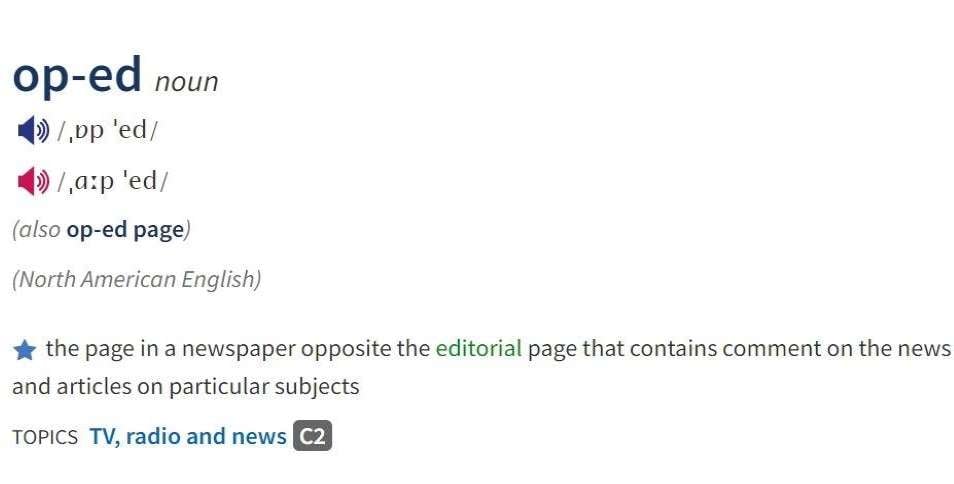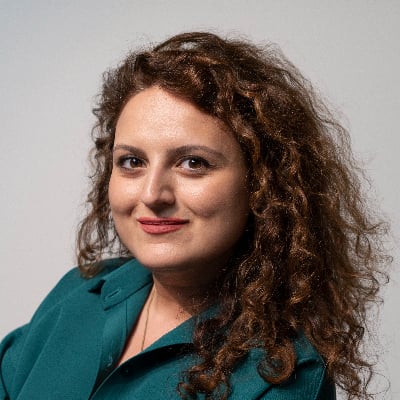
The Armenian mass media is primarily focused on internal political issues rather than events taking place in the world. The Yerevan Press Club reached this conclusion after researching the use of the “op-ed” genre of open editorials/commentary articles in the Armenian media.
The research was carried out in the framework of the “Competing Narratives” project, commissioned by the Media Initiatives Center.
Both quantitative and qualitative research was carried out.
Quantitative research
During the research project, 77 publications were analyzed from five different mass media outlets within a span of one month.
The Armenian press rarely utilizes Open editorials/commentary articles or the “op-ed.” In light of this, the researchers decided to analyze the use of related genres such as editorials, editor’s columns, and opinion columns, both from internal and external authors.
Op-ed publications from five local media sources were selected and monitored using the developed methodology.
Taking into account the frequency of use of relevant genres, we have selected the media outlets “Aravot,” “Hraparak,” “Zhoghovurd,” “Civilnet,” and “Alik media.”
During the monitoring process, we analyzed the topic choice, the presence of positive or negative messages in publications, and the genre characteristics of the materials.
Choice of topic
Out of the 77 publications that were observed in the 5 selected media, 37 of them were related to domestic politics, making it the most popular topic. 19 editorials or opinion columns were related to foreign policy, while 9 references were made to the Artsakh/Armenian-Azerbaijani conflict, putting it in third place. The remaining materials were equally distributed among constitutional changes, socio-economic topics, culture, and sports, with 4 materials for each category.
These numbers indicate that despite the Armenian public’s concern about social and security issues, the media focuses more on the struggle between political camps.
Publications related to foreign/international politics predominantly discuss issues pertaining to Armenia; this suggests that the Armenian media is primarily focused on internal issues and not particularly interested in world events. Topics such as Gaza, Ukraine, and the elections of major world powers, such as the Russian Federation, the USA, and the EU, which are of great interest to the international media, are barely covered in the analyzed publications.
The five selected Armenian media outlets showed a preference for domestic political issues in their coverage, with “Zhoghovurd” being the only one that covered both socio-economic and domestic political topics equally, with three publications each.
In contrast, “Alik Media” and “CivilNet” had more publications on foreign/international politics and the Artsakh conflict. Culture and sports received the least coverage, with only 4 out of 77 observed publications on these topics.
Positive or negative messages
The study unveiled that the majority of publications had a negative tone, with criticism, dissatisfaction, and alarm being the dominant messages. Only three publications had a positive tone, two of which were related to culture and sports.
According to the study’s authors, the high levels of discontent and criticism in the media are not necessarily due to political bias. Instead, they are largely influenced by the public’s mood, which has been shaped by recent events such as the 2020 election, the 44-day war, the displacement of people from Artsakh, and the political and security crisis that followed the war.
Genre characteristic
According to the research, the authors noted that only the “Zhoghovurd” op-eds presented unsigned column elements, such as opinions, attitudes, and emotions. In the other four media outlets, all publications were signed by either editors-in-chief or columnists.
All the editorials published in the “Hraparak” daily newspaper were signed by the editor-in-chief, Armine Ohanyan.
In “Aravot,” Emma Gabrielyan contributed materials containing “column elements” in the “Analysis” section, in addition to the pieces by Aram Abrahamyan in the “Editor’s column” section.
Conventionally, only “Alik Media” and “CivilNet” allowed columns by “external” authors who were free from the obligation to follow the newsroom’s direction.
Qualitative research
During the qualitative research, the authors interviewed the editors-in-chief of “Aravot,” “Zhoghovurd” daily, and “Mediamax,” namely Aram Abrahamyan, Knar Manukyan, and Ara Tadevosyan.
According to the “Editorial” survey, among the mass media outlets that took part in it, “Aravot” has a tradition of 30 years of an editor’s column. The editor’s column is a space where the author can present personal opinion, also defined by the “Aravot” code of ethics. Abrahamyan believes that the editor’s column is intended to express one’s stance, as opposed to a classic open editorial/commentary, which assumes a collective position of the editorial staff or editorial board.
Only “Mediamax” from the surveyed media outlets included around ten columnists, some from abroad. According to Ara Tadevosyan, the presence of open editorials and author’s columns is a key feature of “Mediamax.” Tadevosyan believes that amidst the constant stream of news that bombards people, opinion pieces and columns are a necessary genre that people crave. He further highlights that “normal” opinions from regular people can provide valuable analysis and insight.
The “Zhoghovurd” daily newspaper has seen a change in its editorial approach over the last two years. Previously, all the leading articles were written by the newspaper’s founding editor, Taguhi Tovmasyan. However, the editorial team now decides on the author of the leading article during the morning discussion.
During the interviews, none of the three editors reported any corporate constraints. They emphasized that they are not restricted from expressing their editorial opinion.
According to Aram Abrahamyan, he has a specific target audience for his writing – those who are capable of considering a point of view that may differ from their own. He does not wish to tailor his articles to the audience of “Dog,” a blogger named Vardan Ghukasyan, who he believes may not fit this criterion.
Ara Tadevosyan also refuses to tailor his opinion to suit his audience. He stated, “Once Mediamax publishes something, it is not subject to editing or removal. This is even more true for columns.”
Knar Manukyan had a different opinion on balancing editor’s words with audience’s expectations. She believes that certain topics require meticulous coverage keeping the reader in mind.
The editor-in-chief of “Zhoghovurd” daily highlighted the importance of being mindful and sensitive when covering the topic of prisoners of war. She emphasized that it is crucial to remember that on the other side are parents and family members who could be hurt by the publication. Furthermore, she mentioned that any negative coverage could worsen the condition of those in captivity. Therefore, every journalist at “Zhoghovurd” considers this circumstance before publishing any story related to prisoners of war.
Issues related to professional ethics
Ara Tadevosyan discussed the importance of upholding professional ethics when writing open editorials during global and regional instability. He emphasized the value of a writer’s experience and perspective, stating that those with diverse backgrounds and viewpoints have the right to contribute their opinions to editorials and columns. In short, Tadevosyan believes only authors with unique professional approaches should be allowed to bring their views to the table.
The editor of “Zhoghovurd” newspaper stated that it is understandable for journalists to have emotional “outbursts” in their writing during these unstable, tense times. However, she emphasized that their articles must be based on concrete facts and not just emotional outbursts. Since 99% of their op-eds are on political topics, it is inevitable for personal attitudes to be expressed.
The editor of “Aravot,” Ara Abrahamyan, believes in providing a balanced response to the country’s current situation and relevant geopolitical events. He mentioned that he no longer includes cynical jokes in his writing, a common practice in his late 1990s and 2000s articles. While he still criticizes it, his style has become more restrained overall.
The research was carried out within the framework of the “Competing Narratives” project implemented by the Media Initiatives Center and n-ost.


Add new comment
Comments by Media.am readers become public after moderation. We urge our readers not to leave anonymous comments. It’s always nice to know with whom one is speaking.
We do not publish comments that contain profanities, non-normative lexicon, personal attacks or threats. We do not publish comments that spread hate.